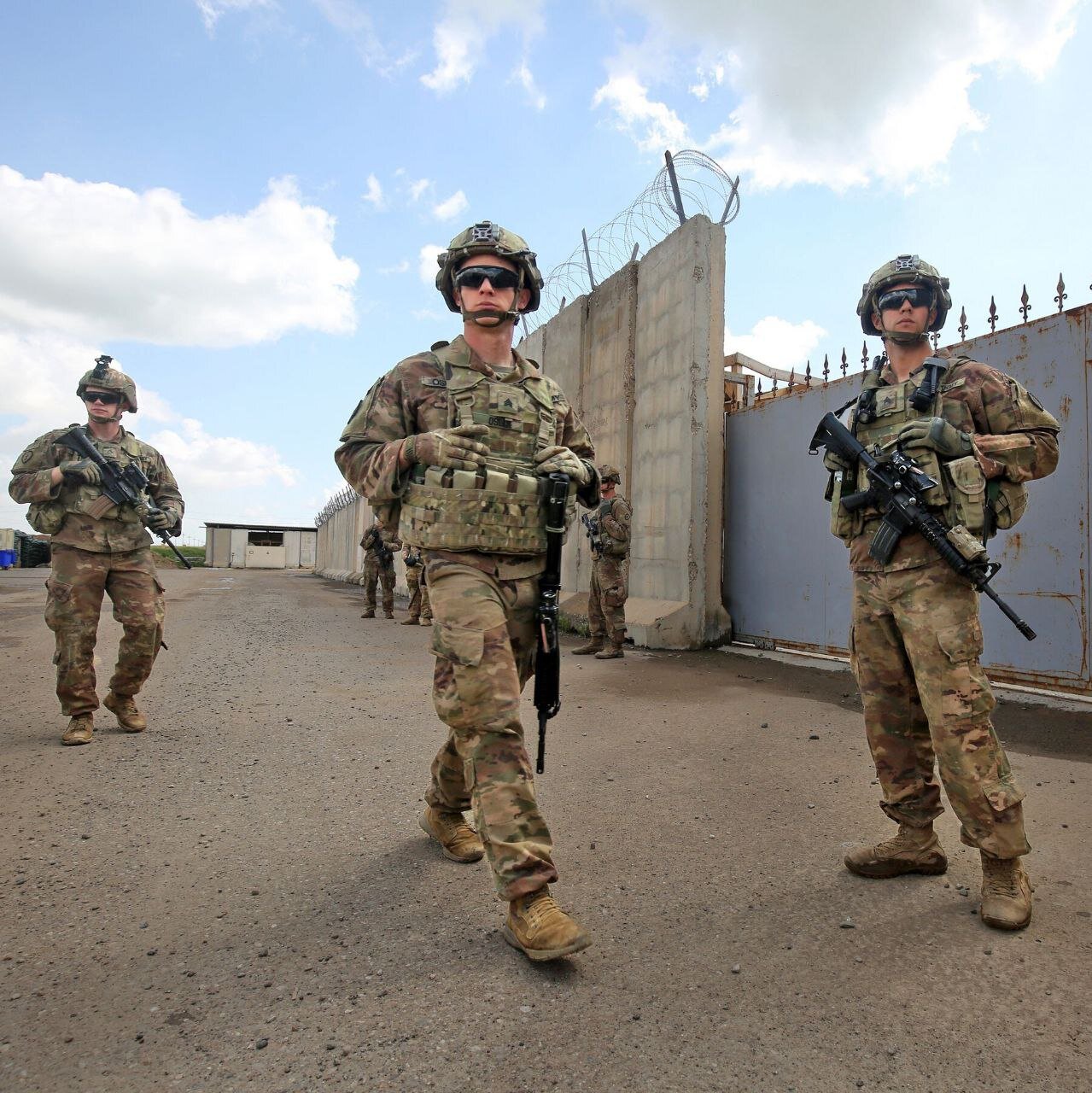Iraq wants US troops out
Baghdad seeking guaranteed timeliness for withdrawal

TEHRAN- Amid talks being held in the United States this week between a top American delegation and an Iraqi delegation, reports have emerged that the government of Iraqi Prime Minister Mohammad Shia al-Sudani wants U.S. occupation forces to leave Iraq as early as this year.
The negotiations began after October 7, when the Islamic Resistance in Iraq began targeting U.S. bases in Iraq and its neighbor Syria, which it deems as illegal bases.
Following the death of three American soldiers and the injury of 30 others at Tower 22, in late January this year, the talks were temporarily put on hold and later resumed.
But as the genocidal Israeli war on Gaza continues, the Iraqi resistance has been carrying out long-range ballistic missile and drone strikes against “vital Israeli targets”.
At the same time public pressure has mounted on the government in Baghdad to kick out American forces who make up the largest force of the Western coalition to defeat Daesh.
Yet, Daesh collapsed in November 2017, and the Popular Mobilization Forces (also known as the Hashd al-Sha’abi) have been going after the terror group’s sleeper cells.
Experts point out that American forces no longer have a credible claim to be in Iraq and have instead played a more sinister role, especially in northern Iraq by helping Israeli spy agents to infiltrate the semi-autonomous region with the help of some Kurdish factions.
Experts further point out that the U.S. presence in Iraq has played a destabilizing role in Iraq and neighboring Syria instead of its declared mandate of combating Daesh.
The last time the two sides sat down for talks, the U.S. stated it would transition its role from a “combat” one to an “advisory” one for the Iraqi army.
Yet, critics say it was the same U.S.-trained Iraqi army that collapsed in the summer of 2014 when Daesh took control of large swathes of Iraq.
The Islamic Resistance in Iraq, an umbrella group of various armed factions, has informed the government it would resume attacks on U.S. bases if there is no clear timetable for an American withdrawal.
The attacks were halted to allow the Iraqi government to try and take the diplomatic path.
According to news agencies, citing Iraqi sources, Iraq wants U.S. troops to begin withdrawing in September and to formally end the coalition’s work by September 2025.
Speaking to reporters, Mathew Miller, the U.S. State Department spokesperson said that both sides were meeting in Washington this week to determine how to transition the role of the American presence based on the threat posed by Daesh, adding he had no further details.
Whether that will satisfy the Iraqi resistance acting in solidarity with Gaza is unclear at this point.
Two of the most powerful Iraqi resistance factions, Kataib Hezbollah and Kataib Seyyed al-Shuhada, have issued statements over the past weeks stating that their patience has a limit.
The United States invaded Iraq in 2003 to topple the former dictator, Saddam Hussein, but faced an armed resistance that forced then U.S. President Barack Obama to withdraw the forces.
In 2014, under the guise of Daesh, the U.S. military slipped back into the country through the back windows to supposedly help tackle the Daesh.
However, the former Iraqi Prime Minister, Nouri al-Maliki, recalls that for eight months Baghdad was pleading with Washington to deliver hellfire missiles when Daesh was covering on the Iraqi border with Syria.
According to al-Maliki, Iraq had already paid for the missiles and its air force could have used them to destroy Daesh before it took over swathes of territory and essentially prevented three years of savage terrorism.
The U.S. currently has around 2,500 troops in Iraq but experts say the number is much higher with the number of troops at the American embassy in Baghdad. They are believed to be the largest in the world. That the embassy hosts an anti-missile air defense system in its compounds is unknown.
American troops are based at three main bases, one in Baghdad (the U.S. embassy), one in western Anbar province (Ain al-Assad) and another in Erbil in the northern Kurdistan region.
Polls show the Iraqi public considers the prolonged American presence in Iraq as an occupation.
Critics say if the U.S. presence is an advisory one then Iraqi forces should have full access to the military bases and that all their flights over country’s airspace should be coordinated with the Iraqi security apparatus.
Making matters worse, the Pentagon ordered the assassination of several Iraqi commanders of the Popular Mobilization Forces, which is an integral part of the Iraqi armed forces that answer to the Iraqi commander-in-chief.
The most notable Iraqi commander assassinated this year by the U.S. has been Abu Baqr al-Sa’adi, which saw public anger against the U.S. mount even higher.
Leave a Comment